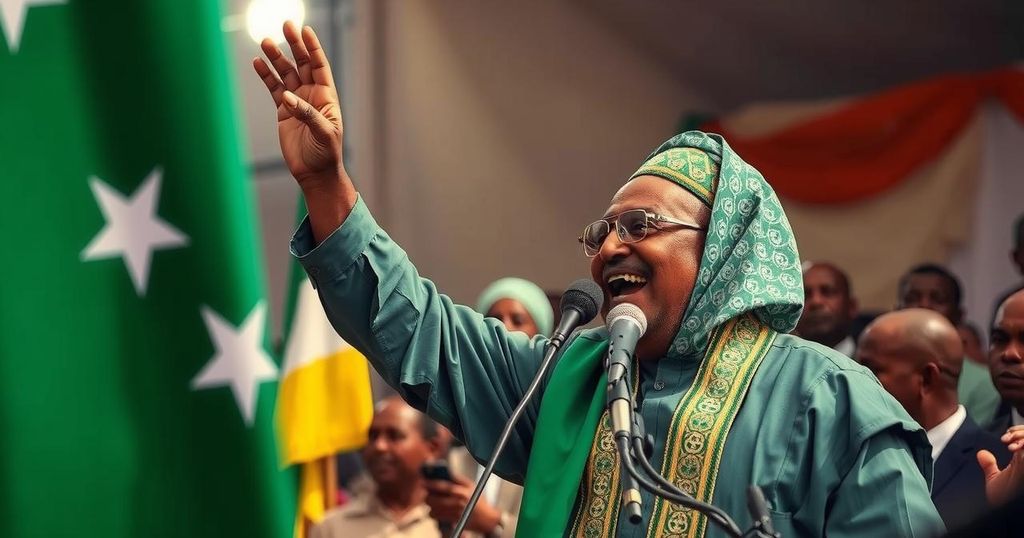Abdullahi Wins Somaliland Presidential Election Amid International Aspirations
Abdirahman Mohamed Abdullahi, known as “Irro,” won the Somaliland presidential election with nearly 64 percent of the vote, defeating incumbent President Muse Bihi Abdi. Somaliland seeks international recognition and hopes to finalize a deal with Ethiopia for sea access. This election follows a two-year delay and reflects the region’s ongoing efforts to stabilize its economy and political situation while navigating regional tensions.
Abdirahman Mohamed Abdullahi, also known as “Irro,” of the Waddani Party, has achieved a significant victory in the presidential election of Somaliland, capturing nearly 64 percent of the vote. His triumph was confirmed by the Somaliland National Electoral Commission, who noted that he defeated the incumbent, President Muse Bihi Abdi, who garnered approximately 35 percent of the votes. This election, delayed for two years due to financial difficulties among other obstacles, reflects the region’s ongoing quest for international recognition, an objective that both candidates had pledged to prioritize. Somaliland, which declared independence from Somalia in 1991 amidst ongoing conflict, has developed a stable government and a distinct identity, running its own internal affairs despite lacking international recognition. The newly elected President Abdullahi has emphasized the importance of economic revitalization and enhancing Somaliland’s global standing. Alongside these priorities, the region hopes to finalize a contentious agreement with Ethiopia that would provide Ethiopia with sea access in exchange for a thorough assessment regarding Somaliland’s quest for recognition. Despite facing regional tensions, especially against the backdrop of Somalia’s perception of the deal as a challenge to its sovereignty, Somaliland remains optimistic. The anticipated influx of international engagement may further bolster its ambitions. Additionally, there is hope that the incoming United States administration will reassess its longstanding recognition of Mogadishu’s claim over Somaliland, as notable officials during Trump’s first term expressed support for Somaliland’s recognition.
Somaliland has positioned itself as a unique entity since declaring independence from Somalia in 1991, establishing a functioning government and a degree of stability uncommon in the region. However, it remains entirely unrecognized on the international stage, creating challenges for trade and international relations. The recent election of Abdullahi highlights the region’s aspirations for formal acknowledgment and could signify a shift in its economic and political strategies. As Somaliland seeks to enhance its international profile, the implications of the anticipated Ethiopian agreement remain an area of concern and hope.
The election of Abdullahi marks a pivotal moment for Somaliland’s political landscape as it embarks on a renewed effort for international recognition and economic rejuvenation. His victory over the incumbent president illustrates a clear desire for change among the populace. As Somaliland navigates its complex relationship with both Ethiopia and Somalia, the developments in its governance and international engagement will play crucial roles in determining its future.
Original Source: www.aljazeera.com




Post Comment